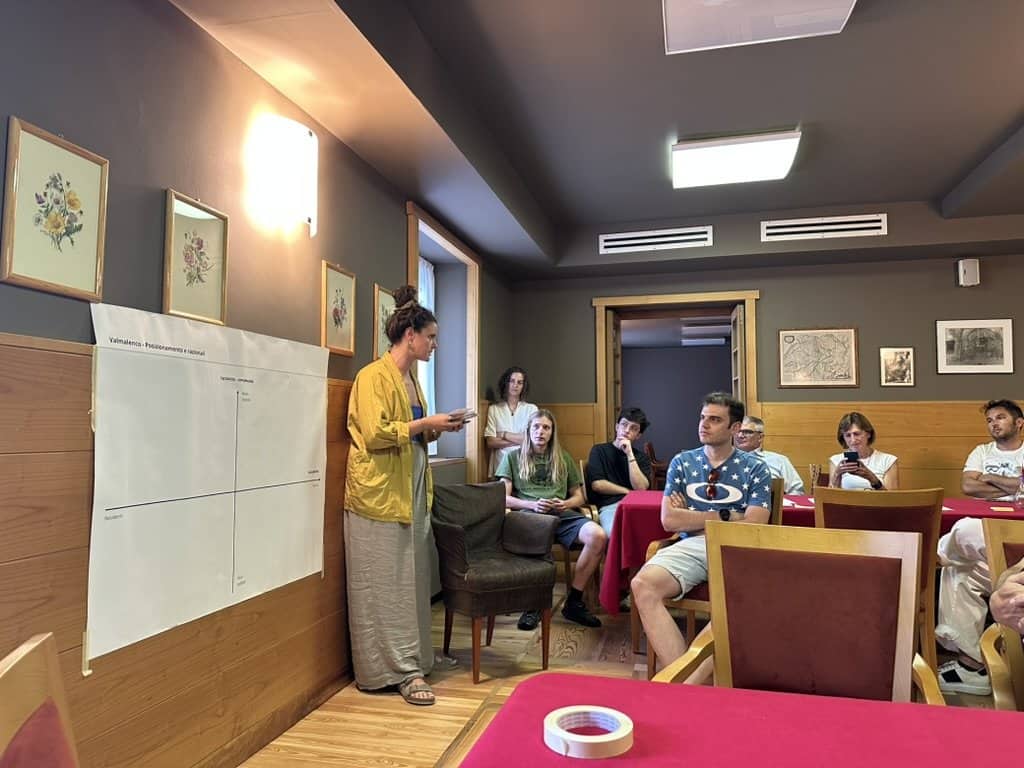On June 24, 2025, a new workshop was held in Chiesa in Valmalenco as part of the TranStat project promoted by Regione Lombardia and UNIMONT. Following the exploration and scenario-building phase carried out in the previous months, the new meeting marked a moment of consolidation and strategic selection of the ideas that had emerged, with the aim of outlining a concrete development vision for the mountain territory.
Through idea refinement activities and dot voting, participants revisited the proposals generated during previous workshops, assessing their potential impacts, benefits for residents and tourists, networking potential, and feasibility. The most relevant ideas were then positioned on a strategic matrix to help identify priorities for action and possible synergies between interventions.
Three proposals gained the greatest consensus: the coordination of the cultural offering, highlighting the need for unified management of events, funding calls, and local initiatives to enhance cultural heritage in a modern and accessible way; the strengthening of services, particularly internal mobility, through smart solutions such as flexible shuttles, bike-bus integration, and equipped parking areas, aimed at both residents and tourists; and the expansion of the summer tourism offer, by promoting outdoor sports like trekking, biking, and climbing, enhancing existing infrastructure, and supporting authentic experiential activities with a focus on high-quality, sustainable tourism.
Other proposals, although less voted, were recognized as highly strategic. These included the creation of a training and research hub focused on renewable energy and the management of natural resources, with the potential to attract young people and stimulate local innovation; the development of a “Grey Community” appealing to freelancers and digital nomads, supported by coworking spaces and digital services; and the production of renewable energy and sustainable, landscape-integrated water management systems.
The workshop clearly highlighted the need to establish a stable and neutral coordination body capable of ensuring continuity for the initiatives, promoting dialogue among institutions, and supporting long-term project implementation. This “shared pact” is seen as a crucial condition for turning ideas into concrete and generative actions.


